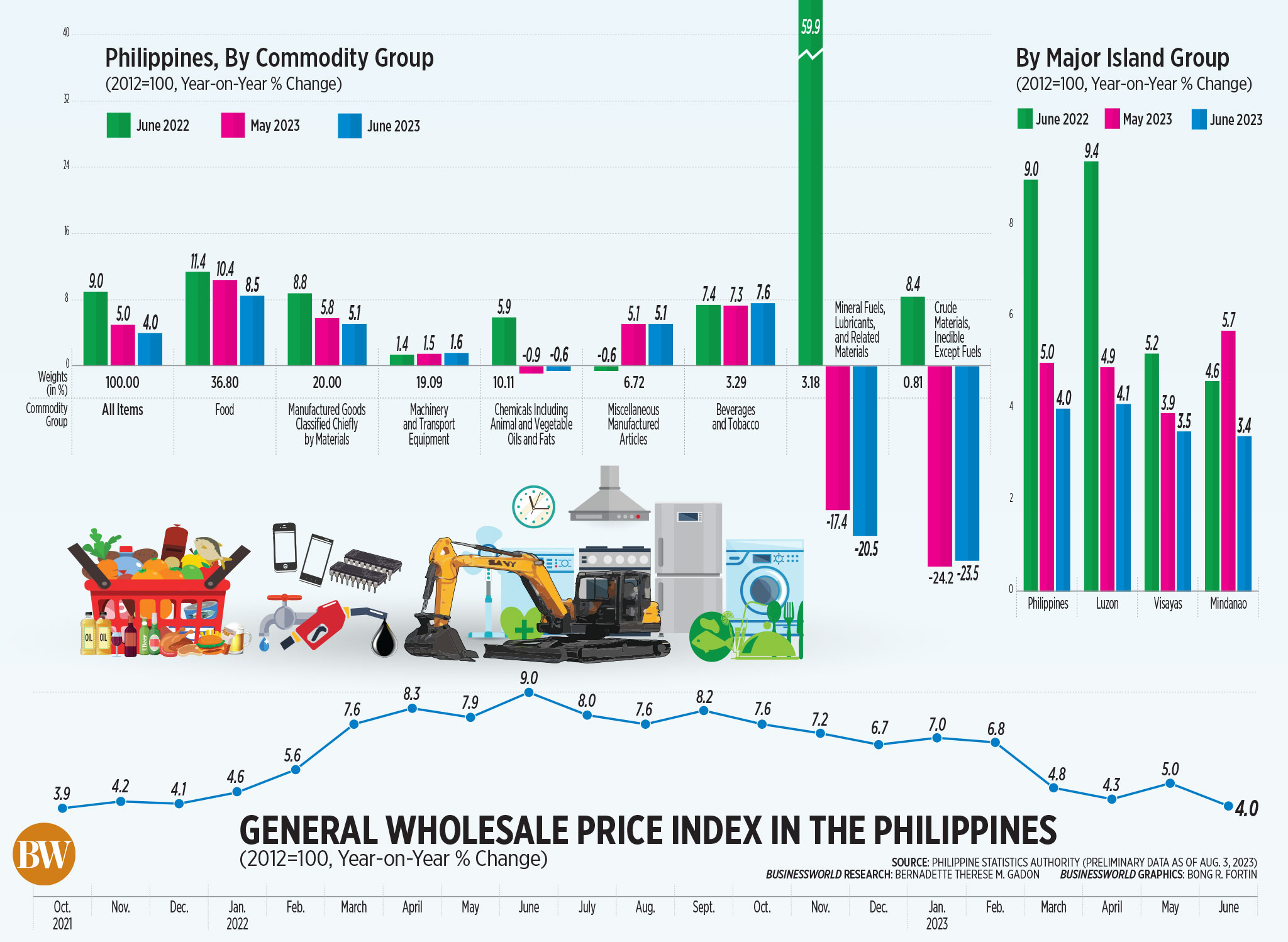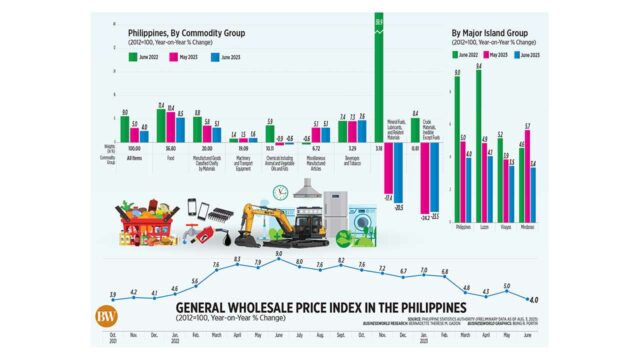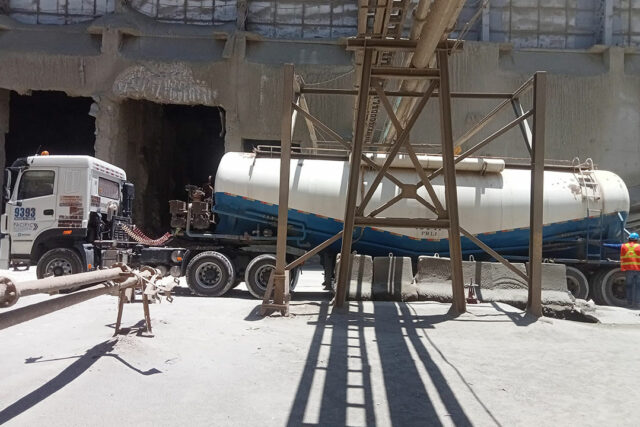GROWTH in the bulk prices of general goods eased to a 20-month low in June, the Philippine Statistics Authority (PSA) said, as food price growth moderated.
According to preliminary data, the general wholesale price index (GWPI) rose 4% year on year in June, slowing from the 5% posted in May and 9% from a year earlier.
The reading was the lowest since the 3.9% logged in October 2021.

In the first half, the national GWPI averaged 5.3%, decelerating from the 7.2% reading a year earlier.
Domini S. Velasquez, chief economist at China Banking Corp., said base effects are a factor apart from easing global commodity prices and softer demand from manufacturers.
“Favorable base effects from last year’s price highs also likely helped bring down the inflation print,” she said in a Viber message.
Inflation in June eased to 5.4% from 6.1% in May, the lowest level in 14 months. Year to date, inflation averaged 7.2%, exceeding the revised 5.4% projection issued by the central bank.
The PSA attributed the slowdown in index growth to the downtrend in the heavily-weighted food segment, where growth slowed to 8.5% in June from 10.4% in May. Growth in prices of manufactured goods classified chiefly by materials also eased, to 5.1% from 5.8% the prior month.
Commodity groups that experienced accelerated price growth were beverages and tobacco (7.6% from 7.3% a month earlier) and machinery and transport equipment (1.6% from 1.5%).
Luzon’s GWPI exceeded the national average, rising 4.1% in June, against 4.9% in May and 9.4% in June 2022. Luzon price movements were also driven by the food index, where growth was 8.8% in June against 10.6% in May, the PSA said.
In the Visayas, growth in the GWPI eased to 3.5% in June from 3.9% in May. The year-earlier reading had been 5.2%.
Mindanao price growth also slowed to 3.4% in June from 5.7% in May. In June 2022, the increase in bulk prices had been 4.6%.
Ms. Velasquez is projecting an uptick in wholesale prices due to higher input costs going forward.
“Global oil prices have been rising recently and the minimum wage in (the National Capital Region) was increased. Other regions may also impose wage increases of similar magnitude,” she said.
She also added that July manufacturing Purchasing Manager’s Index (PMI) is signaling that “price pressures have slightly intensified.”
“Improving demand for manufactured goods could also drive up wholesale prices,” she said.
The NCR Tripartite Wages and Productivity Board approved a P40 increase in the daily minimum wage in Metro Manila, which took effect on July 16.
This brought the daily minimum wage to P610 for workers outside the agriculture sector and P573 for those in agriculture, service retail establishments with 15 or fewer workers, and manufacturing companies with less than 10 workers.
Meanwhile, manufacturing activity metrics signaled an improvement with the July S&P Global Philippines Manufacturing PMI rising to 51.9 from 50.9 in June.
The July reading marked the 18th straight month the PMI was above 50, the threshold for expanding activity. The PMI is a leading indicator of future factory utilization, measuring the confidence of purchasing managers in ordering raw materials for future conversion into finished goods. — Abigail Marie Pelea Yraola










